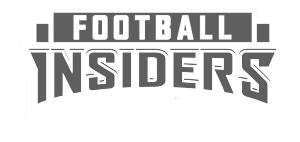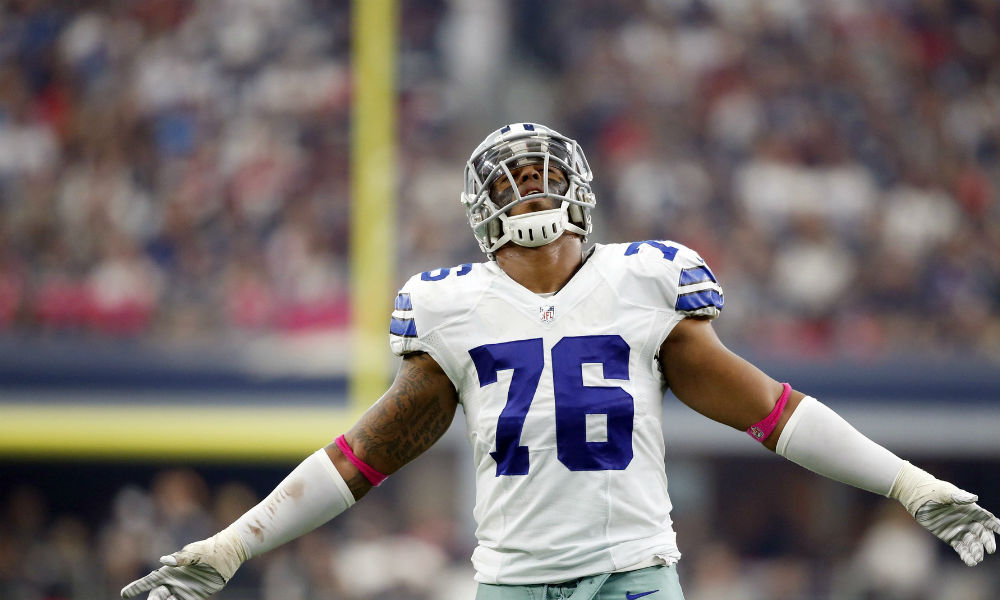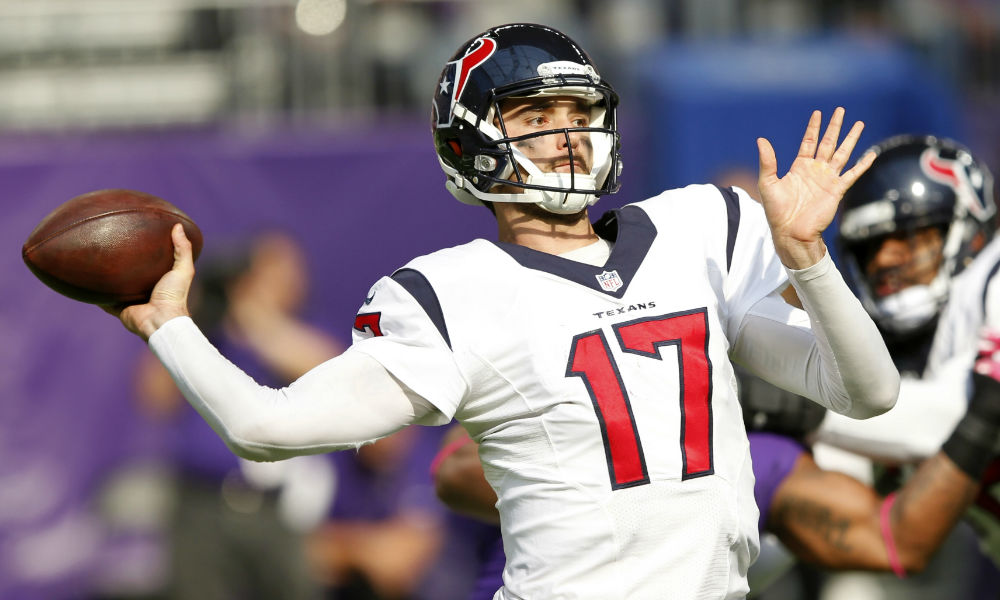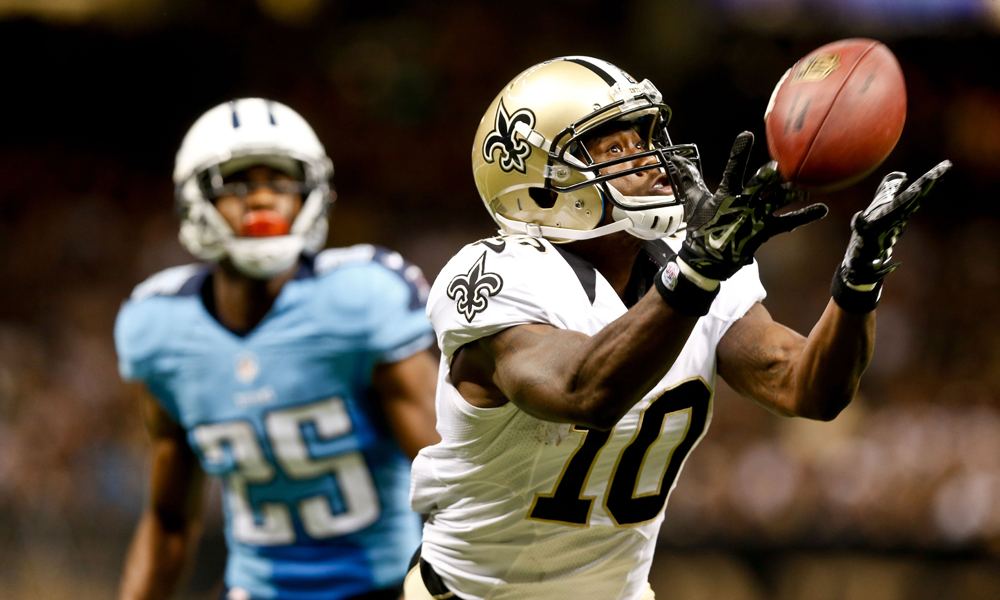News
Kelly Is Pushing His Chips In With Bold 2015 Bet
With brazen moves this offseason, Chip Kelly is making a bet on himself and his scheme.
Now that the offseason activity in Philadelphia has temporarily died down enough to allow the dust to settle — and the draft looms still a little over a month away — it’s as good a time as any to assess how the wheeling and dealing of Chip Kelly has positioned the Philadelphia Eagles for the 2015 season so far.
An assessment of Philadelphia’s moves this month clearly shows that Kelly is making a boom or bust 2015 bet on himself and his scheme. He’s gone to such great lengths to execute his master plan this month alone that there are only two ways this ends: playoff success in Philly or a swift Eagles exit for Kelly.
Over the course of Kelly’s first two years with the Eagles, the team’s player personnel department was run by Howie Roseman, who served as general manager. In the 24 months that followed, Philadelphia took a fairly calculated and cautious approach in adapting to Kelly’s system. Sure there were a few shakeups, like the shocking release of wide receiver DeSean Jackson in March of last year, and some other notable additions and subtractions. But for the most part Philly’s personnel moves flew under the radar, and that worked, as the Eagles won the NFC East in Kelly’s first year as coach and made a run at repeating in 2014.
But a collapse in the final month of the 2014 season, saw Philadelphia fall hard. The Eagles went 1-3 in December and, as a result, not only dropped out of the top spot in the division, but out of the playoffs entirely, a notable step back from 2013’s success. Major shakeups have followed ever since.
On January 2, Roseman was “promoted” to Executive Vice President of Football Operations, and Kelly took over the complete reins of the player personnel department. Kelly stated last week that he didn’t seek more power and that his new role as head of player personnel was simply awarded to him by owner Jeffrey Lurie.
“I didn’t think I needed control of the personnel. That was a decision that our owner made,” Kelly said during a March 11, press conference to announce a barrage of moves made by the Eagles at the opening of the NFL league year. “I just had a meeting with him, like I do at the end of every year, in terms of the direction of what we were doing and how do we go from being a 10-6 team to a team that can win the Super Bowl and that was a decision that Jeffrey made. I didn’t make any suggestions. I just talked about the vision of this thing and then he came back to me with what he wanted to do and how he wanted to run this.”
But given how swiftly he has acted to make big and bold moves since he took over total management of the roster, it’s hard to believe this wasn’t a power play by Kelly. Rumors swirled in the days following the season that Kelly might not be long for Philadelphia. But instead, he was promoted. Are we to believe that is a mere coincidence?
Kelly’s first move this offseason was to rid his roster and his offense of another big personality — much the same way the team did when they cut Jackson in 2014, a move that had Kelly’s fingerprints all over it. So the Eagles shopped and dropped running back LeSean McCoy, the franchise’s all time leading rusher and the centerpiece of the offense during their playoff run in Kelly’s first season as coach. Philadelphia did get a great return for McCoy from Buffalo in linebacker Kiko Alonso who, it should be noted, is a former Oregon Duck. If Alonso can bounce back from the knee injury that cost him all of the 2014 season, the 2013 PFWA Defensive Rookie of the Year projects as the quarterback of Philly’s revamped defense.
Kelly explained that the reasoning for the trade of McCoy was two-fold. Of course there was the obvious of swapping value for value to obtain Alonso. But Kelly also noted that the departure of McCoy was financially driven, an explanation that doesn’t align with some of the moves that followed.
“You would love to keep everybody if you could pay everybody, but it’s not baseball. We are all limited by a cap number and you’ve got to give something up to get something. Did we want to lose LeSean? Certainly not,” he said. “Really the biggest factor with LeSean, it was LeSean and the money, and what could that get us and we felt like we got two quality players back in return.”
The second of those quality players was another upgrade to Philly’s undermanned defense, former Seahawks cornerback Byron Maxwell. The Eagles agreed to terms with Maxwell on a six-year, $63 million deal — with $22 million in guaranteed money — during the league’s legal tampering window on March 9th, presumably putting the money saved on McCoy to good use.
In the first few days of March, the Eagles also released cornerback Cary Williams and linebacker Trent Cole, re-signed linebacker Brandon Graham and signed linebacker Brad Jones. To that point, the Eagles’ moves made sense. They were clearly prioritizing a defense that had contributed strongly to the team’s December collapse, when they allowed more than 400 yards and nearly 29 points per game. But Kelly’s next moves didn’t follow suit.
On March 10, as the new NFL league year officially began, Kelly sent shockwaves through the league landscape when he completed his second blockbuster trade in as many weeks. This deal sent Philadelphia’s incumbent quarterback, Nick Foles, to St. Louis along with a 2015 fourth round pick and a 2016 second round pick for oft-injured quarterback Sam Bradford and a 2015 fifth rounder.
The move is easily the biggest risk Kelly has taken since assuming control of the Eagles, and perhaps the one that will ultimately define his tenure in Philadelphia.
Bradford is a talented quarterback to be sure, but has not been able to escape the injury bug dating back to his final year in college, which was cut short by a shoulder injury. That didn’t stop the former Heisman Trophy winner from being selected first overall in the 2010 draft by the Rams. And in his first year in the NFL, under current Eagles offensive coordinator Pat Shurmur, Bradford put together a campaign that earned him Offensive Rookie of the Year honors and nearly got the Rams into the playoffs.
But Bradford has played just one full season since, and heads to Philadelphia coming off back-to-back seasons that were cut short by ACL injuries. He’s still recovering from the one suffered in the 2014 preseason, which led him to miss the entire season, and he hasn’t taken a snap in a game that counts since October 20, 2013. But Kelly believes the Eagles have bought low on Bradford and appears to be entrusting his own future in Bradford’s talent.
“The deal with Sam Bradford [is], if he never tore his ACL, he would never be traded,” Kelly said. “We wouldn’t have traded for him if we didn’t think he has a tremendous upside as a quarterback. He’s got an outstanding skill set. He’s a big, strong, physical quarterback. He’s over 6 4, he’s 240 pounds, he’s smart, he’s intelligent, he’s one of the most accurate throwers when you see him throw the football. I think he’s smart. I think he’s wired right.
We had some inside information because Pat Shurmur had the opportunity to coach the kid for a year, so he knows what he’s like in the meeting room and he know what he is like on a daily basis and he knows the consistency that comes with him and he understands his work ethic. He’s an unbelievable competitor.”
Depending on how you look at it, the move to acquire Bradford either ends or fuels speculation that the Eagles might trade up in the draft to select Oregon quarterback Marcus Mariota, a Kelly pupil, to run the Philadelphia spread offense. Kelly even noted in his press conference introducing Bradford that he’d been offered a first round pick (reportedly by the Browns) for the quarterback. But he said he turned down the offer and is committed to Bradford as Eagles quarterback, doing the best to squash the Mariota rumors.
“Let’s dispel that right now. I think that stuff is crazy. I think Marcus is the best quarterback in the draft,” Kelly said. [But] we will never mortgage our future to go all the way up to get somebody like that because we have too many other holes that we are going to take care of.”
However, the Eagles coach is becoming known for his double talk, and it will be hard to believe they aren’t targeting Mariota, who would be a perfect fit in Philadelphia, until he’s drafted by and playing for somebody else.
Whether Philly’s quarterback is Bradford, Mariota, or Mark Sanchez, who the Eagles re-signed to a two-year deal, the QB will need weapons at wide receiver, and that’s where Kelly’s plan appears to be most defective. One year after cutting Jackson, the team’s No. 1 receiver at the time, Philadelphia again let their top wideout depart, this time via free agency.
As the Eagles were finalizing plans to subtract McCoy and Foles and add Bradford, Maxwell and Alonso, Jeremy Maclin signed a lucrative five-year $55 million contract to reunite with former Eagles coach Andy Reid in Kansas City. After missing all of the 2013 season with a knee injury, Maclin starred for the Eagles in 2014, hauling in 85 passes for 1,318 yards and 10 touchdowns. The speedy receiver seemed like a great for Kelly’s offense and at age 26, would appear to have several of his best years ahead of him. Still Kelly said the financial commitment the Chiefs made to Maclin was one the Eagles simply couldn’t match.
“We did not want to lose him,” Kelly said of Maclin. “He had a tremendous year for us. It’s just that we couldn’t go as high as Kansas City went. That’s really what it came down to, but we definitely wanted Mac back. We have got some alternative plans and you always have to have contingency plans, but the ultimate plan was we wanted to have Mac back. It just didn’t work out.”
In theory, that makes sense. The Chiefs did hand Maclin quite a chunk of change, including $22.5 million in guaranteed money. With needs still left to address on the defensive end, Philadelphia could be pardoned for not committing so much to one player. Kelly’s system supposedly values scheme over star anyway. But the next moves Kelly and co. made flew directly in the face of that assessment.
One of the first additions Philly sought to make at the outset of free agency was securing a running back to replace McCoy. They were rumored to have an agreement in place with former 49ers running back Frank Gore during the league’s legal tampering window. But Gore backed out to sign with the Colts, forcing the Eagles to move on to Plan B. They quickly moved to come to an agreement with former Chargers running back Ryan Mathews.
However, before Mathews could sign, Kelly received a call from Dallas Cowboys free agent running back DeMarco Murray, the NFL’s leading rusher in 2014. Kelly couldn’t resist the allure of luring Murray away from Dallas and invited him to Philadelphia, where Murray signed a five-year, $40 million contract with $18 million guaranteed. The Eagles also went through with signing Mathews to a three-year, $11 million contract. With running back Darren Sproles also still on the books for $4.1 million and $1.5 million committed to Chris Polk, that’s nearly $13 million allotted to the running back position in 2015 alone, with more to come as Murray and Mathews both see their cap numbers rise significantly in 2016.
The two backs, both north-south runners are strong fits for Philadelphia’s scheme, but that’s a large chunk of money to commit to a position that the Eagles probably could have addressed much more cheaply in a draft class stacked at the running back position.
“Just his style, how he plays…a physical, downhill runner, really [for] that zone scheme we’re looking for. [He’s a] downhill one-cut runner,” Kelly said describing what appealed to him about Murray. “Both him and Ryan possess those qualities. When you have a physical, downhill runner, you better have two of them because they’re going to carry the ball but they’re also going to take a lot of physical shots, so you want to be able to spread out the carries.”
Based on that statement the Eagles, like many teams, are moving toward a running back committee. Except while most teams fill out that committee on the cheap, the Eagles will be spending $13 million on the position in 2015 and are scheduled to spend $16.5 million on their committee in 2016.
Meanwhile, the wide receiver position has been neglected. Riley Cooper is currently slated to be the team’s top wide receiver while 2014 second round pick Jordan Matthews and 2014 third round pick Josh Huff are currently ticketed for expanded roles in their sophomore seasons. Mathews was impressive as a rookie with 67 catches for 872 yards and eight touchdowns, while Huff was used more as a return man and only had eight catches during the season. Kelly also noted that the Eagles could once again look to the draft to add more talent at the position.
“We think, in terms of our model, that it’s a really good draft for wide receivers,” he said. “We also have a lot of confidence in some of [our guys]. Jordan Matthews had an outstanding year for us as a rookie. He’s going into Year 2. We’ve got a lot of high expectations for Josh Huff. We’re excited about him. We have Riley Cooper back.”
But that trio likely won’t be enough, not with so much invested in the comeback effort of Bradford. While injuries were the foremost issue for Bradford in St. Louis, when healthy he was often undone by the Rams’ lack of talent at the receiver position. That, along with the injuries, kept him from reaching his potential during his Rams tenure. Kelly acknowledged as much on the day that the team announced the Bradford trade.
“I think everybody’s a byproduct of what’s around you and kind of where you are,But I think when you’re assessing individual players, I’m watching skill set,” he said. “Sometimes when the quarterback throws the ball directly where it needs to be and the receiver drops it, is that the receiver’s fault or is that the quarterback’s fault? So what does it go down as for the quarterback? That’s 0-for-1, and he doesn’t gain any yards on it. So I think there’s a lot of different things that happen when you study an individual player. I don’t think you can look at somebody, especially at that position, and say sheer statistics tell you what that player is.”
But with all those things in mind, Kelly has still done very little to add talent to flank Bradford, a puzzling decision to say the least. The Eagles also haven’t completed the rebuild of their defense. Philly’s front seven projects to be the strength of the team, with all three starting defensive linemen returning and Alonso added to an already deep linebacking group. But the secondary remains incomplete.
Philadelphia did add Walter Thurmond, another former Oregon Duck and Seahawk, who played two games with the Giants last year before a torn pectoral ended his season. Thurmond and Maxwell join Brandon Boykin in the cornerback group and provide a slight upgrade over last year’s trio of Boykin, Cary Williams and Bradley Fletcher. But the team is currently in dire straights on the backend. At free safety they have Malcolm Jenkins, who was mostly disappointing after signing last offseason. Pickings are even slimmer at strong safety, where 2013 fifth round pick Earl Wolff, who has started just seven career games, currently tops the depth chart.
Early on in the offseason, improving the secondary looked like a free agency priority for the Eagles. But once Kelly got his eyes on shiny new toys like Murray to put into his backfield, it seems that overhaul went on the backburner. Now the Eagles will need to address the safety position and the wide receiver position, as well as their overall depth, in what could be a make or break draft for the Kelly regime.
Perhaps the most telling thing Kelly has said this offseason was an answer to a question posed by a member of the media wondering if Kelly sees Bradford, who is in the final year of his contract, as the Eagles’ long-term solution at quarterback.
“We’ll see,” Kelly fired back. “Everything’s a one-year season for everybody and that’s what this league is.”
That’s especially true for Chip Kelly, who has taken over the reins of the Eagles and, with some bold moves, essentially give himself a one-year trial. If it works, Kelly will be vindicated as the genius he was touted as during his years in the college ranks. If it doesn’t work in Philly, there are any number of collegiate athletic directors ready to beat down Kelly’s door and bring him back where he belongs.
News
Buccaneers admit mistake, boot Aguayo
Source: Mike Florio of ProFootballTalk
Powered by WPeMatico
News
Did Bucs put too much pressure on Aguayo?
Source: Mike Florio of ProFootballTalk
Powered by WPeMatico
News
Broncos holding their breath on Derek Wolfe
Source: Mike Florio of ProFootballTalk
Powered by WPeMatico




